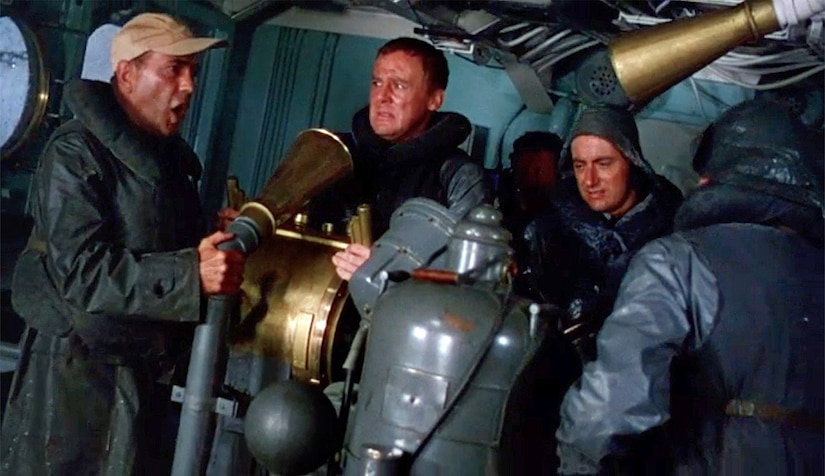Actor Humphrey Bogart is best known for his leading roles in the films “The Maltese Falcon” (1941), “Casablanca” (1942), “The African Queen” (1951), “The Caine Mutiny” (1954) and more.
Lesser known is that Bogart also served in World War I in the Navy and during World War II in the Coast Guard.
In the Spring of 1918 during World War I, Bogart, 18, enlisted in the Navy, training on the sailing warship USS Granite State, a 74-gun ship-of-the-line, docked in the Manhattan borough of New York City and then at Naval Training Camp in Pelham Bay Park, New York City.
Later he served as a signalman aboard the troop transport ship USS Leviathan, which carried troops home from Europe after the war ended, Nov. 11, 1918.
Bogart was then assigned as a chaser, ordered to take a Navy prisoner to Portsmouth Naval Prison, in Kittery, Maine. In Bogart’s telling, when they changed trains in Boston, the prisoner asked Bogart for a cigarette. While he was fumbling for matches, the prisoner smashed him in the mouth with his handcuffs and ran off.
On June 18, 1919, Bogart separated from the Navy, having attained the rank of petty officer 2nd class.
During World War II, Bogart tried again to enlist in the Navy but was rejected due to his age. In 1944, he volunteered and was accepted in the Coast Guard Temporary Reserve.
While in the Coast Guard, he patrolled the California coast in his yacht, the Santana, looking for suspicious enemy activity such as submarines.
Many years later, Bogart’s son, Stephen, said that most people know about Bogart’s movies but “probably fewer know about my father’s other great loves, sailing. Specifically, it was with his 55-foot sailing yacht, Santana. The sea was my father’s sanctuary.”
Bogart’s passion for the sea, extended not just from his time in the Navy, Coast Guard and sailing his yacht, but also in some of the films he starred in.
In “The African Queen,” Bogart and actress Katharine Hepburn sail down a river in a small steam vessel in German East Africa in 1914, just as World War I breaks out. They learn that the German armed steam, the Louisa, is at the mouth of Lake Tanganyika, where it is positioned to block British forces.
The two craft makeshift torpedoes and sail into the lake, where they successfully destroy the German vessel and make their getaway.
In the film “The Caine Mutiny,” Bogart plays Navy Lt. Cmdr. Philip Francis Queeg, the captain of the Navy minesweeper USS Caine, operating in the Pacific Ocean during World War II.
Queeg exhibited mental illness during the cruise, resulting in a mutiny and later court martial.
In the 1948 film “Key Largo,” Bogart plays World War II Army veteran Frank McCloud, who arrives at the Hotel Largo in Key Largo, Florida, where mobsters are staying. A boat and gunfight scene are highlights of the film.
The boat used in the final sequence is named the Santana, which was also the name of Bogart’s real sailing yacht.
Bogart, who was born in New York City on Christmas, 1899, died from cancer in January 1957 in Los Angeles.
(Except for the headline, this story has not been edited by PostX News and is published from a syndicated feed.)


